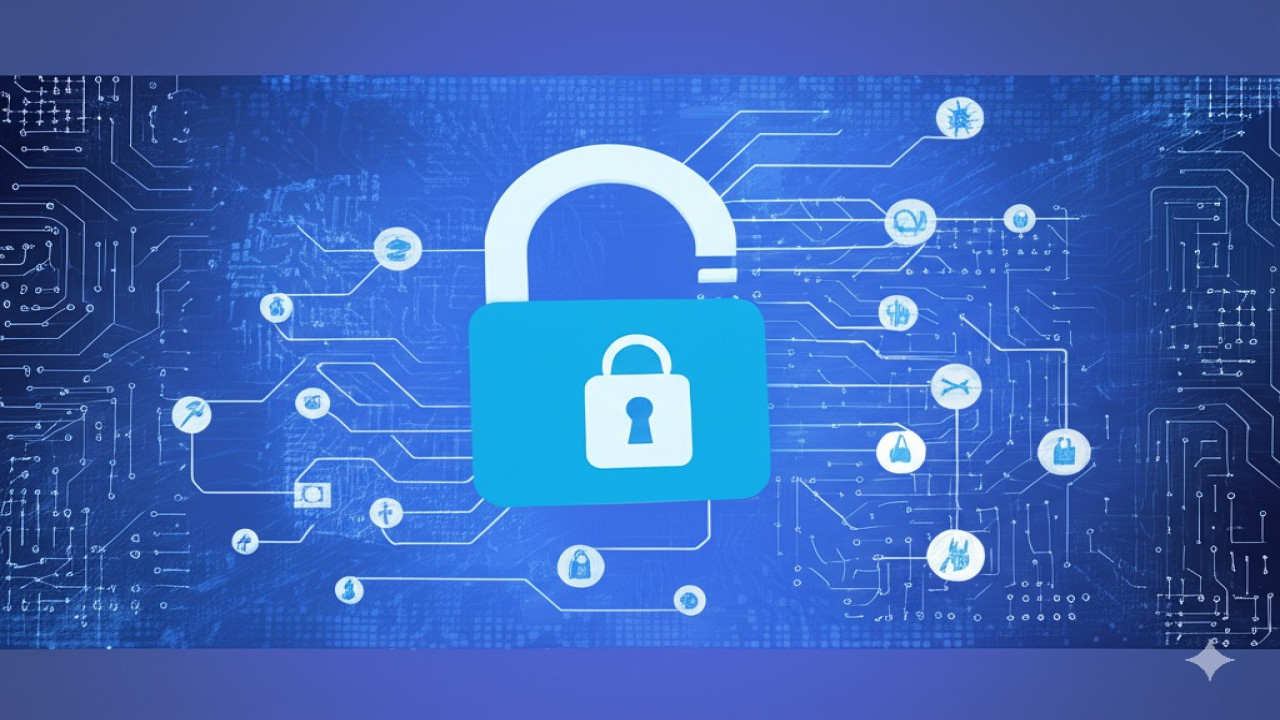which is easy cybersecurity or artificial intelligence?
Why Compare Cybersecurity and AI?
With the digital era booming, two fields have emerged as titans in tech: cybersecurity and artificial intelligence. People often find themselves wondering, which one is easier to learn, master, or even build a career in? If you're standing at a career crossroads or simply curious about what it takes to get into either, you're not alone.
The debate isn’t about which field is better—they’re both critical—but about which one feels more accessible or manageable to break into. That really depends on your background, interests, and learning style. This article dives deep into both, comparing them side by side in terms of difficulty, skills required, career scope, and more.
The Growing Importance of Both Fields
The world is digitizing at lightning speed. With this rapid expansion, cybersecurity has become essential to protect data, systems, and networks from malicious attacks. Think about how many data breaches, ransomware threats, and phishing scams we hear about every week—that’s cybersecurity's battleground.
On the other side, artificial intelligence is quietly transforming the way we live. From personalized Netflix recommendations to voice assistants and self-driving cars, AI is behind much of the innovation we're seeing today.
Both fields are hot, growing, and in dire need of skilled professionals. But which one is easier to learn? Let’s break it down step-by-step.
What is Cybersecurity?
Definition and Scope
Cybersecurity is all about protecting computers, networks, data, and systems from unauthorized access or attacks. It's a broad field that covers everything from securing your personal smartphone to protecting entire government infrastructures.
The scope of cybersecurity is massive. It includes:
- Network security
- Application security
- Information security
- Operational security
- Disaster recovery
- End-user education
Whether you're setting up firewalls, monitoring for suspicious activity, or educating users on phishing, it all falls under the umbrella of cybersecurity.
Core Concepts and Disciplines in Cybersecurity
To truly understand cybersecurity, it's important to grasp its core principles—confidentiality, integrity, and availability (often called the CIA triad). These are the pillars of any secure system.
Other critical areas include:
- Threat detection: Identifying potential breaches before they happen.
- Incident response: Reacting quickly and efficiently to security incidents.
- Penetration testing: Ethically hacking into systems to uncover vulnerabilities.
- Cryptography: Using encryption to protect sensitive information.
Cybersecurity also requires familiarity with operating systems, network protocols, firewalls, antivirus software, and vulnerability scanning tools.
Real-World Applications of Cybersecurity
Cybersecurity isn't just for big tech firms. It applies to every industry:
- Healthcare: Protecting patient records and ensuring HIPAA compliance.
- Finance: Safeguarding banking systems and preventing fraud.
- Retail: Securing customer data and point-of-sale systems.
- Government: National defense and protection against cyber warfare.
And don't forget about personal cybersecurity—strong passwords, antivirus software, secure browsing habits. It's something we all rely on every day.
What is Artificial Intelligence (AI)?
Definition and Scope of AI
Artificial Intelligence refers to the simulation of human intelligence in machines. It's about building systems that can think, learn, and adapt like humans—or better. AI spans everything from narrow tasks like image recognition to broader goals like understanding natural language or mimicking human behavior.
There are two main types of AI:
- Narrow AI: Designed to perform a specific task (like facial recognition).
- General AI: A more advanced concept—machines that can perform any intellectual task a human can.
The scope of AI includes:
- Machine Learning (ML)
- Deep Learning
- Natural Language Processing (NLP)
- Computer Vision
- Robotics
It’s a field that blends computer science, data, math, and logic into powerful algorithms that are reshaping the future.
Core Concepts and Disciplines in AI
To understand AI, you need to understand how machines learn. That’s where machine learning comes in. It involves feeding large amounts of data into algorithms and letting the system find patterns.
Core concepts include:
- Supervised learning
- Unsupervised learning
- Reinforcement learning
- Neural networks and deep learning
- Natural language understanding
- Algorithm optimization
AI also heavily relies on statistics, linear algebra, and calculus—making the math side pretty intense.
Real-World Applications of AI
AI is all around us—even when we don't notice it:
- Healthcare: Predictive diagnostics, robot-assisted surgeries, and personalized treatment.
- Finance: Fraud detection, algorithmic trading, and chatbots.
- Retail: Personalized shopping, inventory management, and customer service automation.
- Transportation: Autonomous vehicles, route optimization, and traffic predictions.
Even social media, gaming, and smart home devices use AI to improve user experience.
Skills Required in Cybersecurity
Technical Skills
To succeed in cybersecurity, you’ll need to build a solid technical foundation. Some essential skills include:
- Understanding of networking (TCP/IP, DNS, firewalls)
- Proficiency in operating systems like Windows and Linux
- Knowledge of security protocols (SSL, HTTPS, VPNs)
- Familiarity with cybersecurity tools (Wireshark, Metasploit, Nessus)
While programming isn't mandatory, knowing Python or Bash scripting can give you an edge, especially for automating security tasks or analyzing malware.
Cybersecurity professionals also work with SIEM systems, vulnerability scanners, and intrusion detection tools to stay one step ahead of attackers.
Soft Skills and Mindset
Beyond tech, cybersecurity requires a strong analytical mindset and attention to detail. You're constantly on the lookout for suspicious behavior or unusual patterns.
Key soft skills include:
- Critical thinking
- Communication
- Problem-solving
- Adaptability
- Ethical reasoning
Being naturally curious and having a bit of a “detective” mindset goes a long way in cybersecurity.
Learning Curve
Compared to AI, cybersecurity has a more forgiving learning curve. Many entry-level roles are accessible without advanced degrees, and certifications like CompTIA Security+, CEH, and CISSP can help you get started quickly.
It’s more about understanding systems, recognizing vulnerabilities, and reacting fast—making it a solid choice for those looking for a hands-on and relatively accessible tech career.
Skills Required in Artificial Intelligence
Programming and Math Skills
AI is deeply technical. You’ll need to master programming lang
uages like:
- Python (the #1 language for AI)
- R (for data analysis)
- Java or C++ (for building large-scale applications)
But that’s not all. A strong foundation in mathematics is absolutely essential. We're talking:
- Linear algebra
- Calculus
- Probability and statistics
Without these, understanding how models work under the hood becomes incredibly difficult.
AI is algorithm-heavy, and the math is non-negotiable—especially when you get into neural networks, optimization algorithms, and backpropagation.
Analytical Thinking and Creativity
Building smart systems isn’t just about math—it’s about thinking creatively. You need to:
- Frame real-world problems in a way machines can understand
- Choose the right algorithms for the job
- Fine-tune models to boost accuracy
AI requires a high level of abstract thinking. You’ll often be experimenting, tweaking, and testing over and over to reach the desired performance.
Learning Curve
The AI learning curve is steep—no sugar-coating it. You’ll likely need at least a bachelor’s in computer science or data science, and many professionals pursue master's or PhDs.
There are beginner-friendly tools like TensorFlow, Scikit-learn, and PyTorch, but understanding how and why things work takes time, patience, and perseverance.
Career Paths and Opportunities in Cybersecurity
Job Roles in Cybersecurity
The cybersecurity field is filled with diverse roles that cater to different interests and skill levels. Whether you're more hands-on with technology or you enjoy analyzing patterns, there's something for everyone. Common job titles include:
- Security Analyst: Monitors systems and responds to security incidents.
- Penetration Tester (Ethical Hacker): Simulates attacks to identify weaknesses.
- Security Engineer: Designs and implements secure network solutions.
- Incident Responder: Reacts to and investigates breaches.
- Security Consultant: Advises businesses on best security practices.
- Chief Information Security Officer (CISO): Oversees the entire security posture of an organization.
These roles exist across all industries—from healthcare and finance to government and tech startups.
Growth Potential and Demand
The demand for cybersecurity professionals is skyrocketing. According to reports, there will be over 3.5 million unfilled cybersecurity jobs globally by the end of 2025. This gap presents a golden opportunity for aspiring professionals.
In terms of growth, cybersecurity allows for rapid career progression. Many enter the field through help desk or network administration roles, then transition into security-specific jobs within a few years. Certifications, experience, and a proactive attitude can accelerate this journey.
Salary Expectations
Cybersecurity pays well—especially considering the lower barrier to entry compared to AI. Entry-level roles like a security analyst can start at $60,000 to $80,000 annually, while experienced professionals like security architects or CISOs often earn $150,000+.
And because security is a necessity for all businesses, salaries remain competitive even during economic downturns. It’s a stable and rewarding career option for the long haul.
Career Paths and Opportunities in Artificial Intelligence
Job Roles in AI
AI is at the cutting edge of innovation. It offers a wide range of roles that require strong technical expertise and an analytical mindset. Some key roles include:
- Machine Learning Engineer: Designs and develops machine learning models.
- Data Scientist: Analyzes data to derive insights and build predictive models.
- AI Research Scientist: Conducts advanced research in neural networks and algorithms.
- NLP Engineer: Works on language-based AI, such as chatbots and translators.
- Computer Vision Engineer: Specializes in image and video recognition technologies.
- Robotics Engineer: Integrates AI with physical robots for automation tasks.
Most AI jobs are concentrated in tech hubs and larger corporations, but demand is expanding into areas like healthcare, finance, and retail.
Growth Potential and Demand
AI is booming. It’s being called the next industrial revolution, and every company wants a piece of the AI pie. However, unlike cybersecurity, AI is more niche and specialized.
There’s fierce competition for top roles, and employers often expect advanced degrees or strong project portfolios. That said, the demand is only growing—and skilled professionals are in short supply.
Companies are looking for talent who can not only code but also understand the business impact of AI. This creates opportunities for both technical and hybrid roles (e.g., AI product managers or data strategists).
Salary Expectations
AI roles are among the highest-paid in tech. Entry-level positions like data analysts or junior ML engineers often start around $80,000 to $100,000. More advanced roles, especially in Silicon Valley, can earn well above $200,000 annually.
The salary potential is sky-high, but so are the expectations. Employers look for candidates with strong academic backgrounds, real-world project experience, and sometimes even published research.
Education and Certification Comparison
Cybersecurity Certifications
One of the most attractive things about cybersecurity is that you don’t need a four-year degree to get started. There are a variety of industry-recognized certifications that can launch your career:
- CompTIA Security+: Great for beginners.
- Certified Ethical Hacker (CEH): Focuses on penetration testing.
- CISSP (Certified Information Systems Security Professional): For experienced professionals.
- CISA, CISM: For auditing and management-level roles.
These certifications often take weeks or months to study for—not years. And they’re highly valued by employers, especially in industries where compliance is critical.
AI Education Pathways
AI, on the other hand, typically demands a more traditional academic route. Most professionals hold at least a bachelor’s degree in computer science, mathematics, or a related field. Many go on to get master's or PhDs in machine learning, AI, or data science.
There are also specialized AI certifications and online courses, such as:
- Google AI Certification
- IBM Machine Learning Professional Certificate
- DeepLearning.ai’s courses on Coursera
- Microsoft’s AI Engineer certification
However, these courses often serve as supplements—not substitutes—for a strong academic background.
Learning Accessibility
Cybersecurity wins in terms of accessibility. You can start learning with free resources, community colleges, and certifications. AI requires a deeper commitment, often with a heavy academic or research-based focus.
Which is Easier to Learn? Cybersecurity vs AI
Cybersecurity: Easier for Beginners
For most people, cybersecurity is more beginner-friendly. You can start with little to no experience and still make a meaningful impact in a short amount of time. It’s hands-on, problem-solving driven, and practical.
If you enjoy puzzles, detective work, and system tinkering, cybersecurity feels more intuitive and engaging. It’s also less math-heavy compared to AI, making it more approachable for non-technical learners.
The certification path provides a clear, step-by-step entry, and there are tons of affordable online resources to learn from.
AI: More Complex and Technical
AI is incredibly powerful—but it comes with a steep learning curve. If you don’t have a solid foundation in programming and math, it can feel overwhelming quickly.
However, if you love logic, patterns, and theory—and don’t mind spending months or years learning—AI can be fascinating and fulfilling. It’s more academic, more experimental, and often more abstract.
It’s easier if you already have a background in data science or software engineering. But for total beginners? It’s definitely a more challenging path.
Real-World Challenges in Cybersecurity
Constantly Evolving Threats
One of the biggest challenges in cybersecurity is that the landscape is always changing. Hackers constantly develop new ways to exploit systems, making it essential for professionals to stay one step ahead. This means continuous learning is not just helpful—it’s mandatory.
From ransomware and phishing to zero-day vulnerabilities and insider threats, you must be on high alert. Attack vectors evolve rapidly, and defenses need to adapt just as fast. It’s like an arms race, where staying current is the only way to stay protected.
Resource Constraints and Stress
Cybersecurity professionals often work under pressure. When a breach occurs, the response needs to be immediate. There’s little room for error, and the consequences can be severe—financially, legally, and reputationally.
Additionally, many organizations don’t allocate enough budget or staff to security, which leads to overworked teams and potential burnout. Managing expectations, patching systems, and ensuring compliance—all while keeping threats at bay—can become a high-stress balancing act.
Human Factor in Security
Ironically, the biggest vulnerability in cybersecurity is often the human user. No matter how secure a system is, one careless click on a phishing email can bring it down. Educating users and creating a security-first culture is a major ongoing challenge.
This blend of technical defense and human behavior makes cybersecurity as much about people as it is about machines.
Real-World Challenges in Artificial Intelligence
Data Dependency and Bias
AI is only as good as the data it’s trained on. If the data is flawed, biased, or incomplete, the results will reflect that. This can lead to real-world problems—such as facial recognition systems that fail to recognize certain ethnic groups or predictive policing algorithms that reinforce discrimination.
Gathering clean, balanced, and relevant data is one of AI’s biggest hurdles. Without it, even the most advanced algorithms can produce misleading or dangerous outputs.
Complexity and Interpretability
AI models—especially deep learning systems—can become black boxes. In many cases, it’s nearly impossible to understand why an AI made a particular decision. This lack of transparency creates trust issues, especially in critical sectors like healthcare or finance.
Building interpretable AI is an active research area, but it remains a tough challenge. Stakeholders want accuracy and explainability, which isn’t always easy to deliver.
Ethical and Regulatory Issues
The more AI integrates into daily life, the more questions arise: Should AI make hiring decisions? Should it have the power to approve loans or parole decisions? These ethical dilemmas are far from theoretical—they’re happening now.
As regulations around AI usage tighten (think GDPR, AI Act in the EU), professionals must navigate a complex legal and moral landscape. AI is powerful, but with that power comes serious responsibility.
Community and Learning Resources
Cybersecurity Learning Resources
One of the great things about cybersecurity is the abundance of learning material available online. From YouTube tutorials and free MOOCs to interactive platforms and hands-on labs, it’s easy to dive in. Top resources include:
- TryHackMe and Hack The Box for real-world practice
- Cybrary for online courses
- SANS Institute for professional training
- Reddit’s r/netsec and Twitter for community discussions
Cybersecurity conferences like DEFCON and Black Hat also offer opportunities to connect with the global hacker and security community.
AI Learning Resources
AI also has a vibrant online ecosystem, but it often requires more structured learning. Top platforms include:
- Coursera, edX, and Udacity for beginner to advanced AI courses
- Kaggle for competitions and datasets
- Fast.ai for practical deep learning
- Google AI Blog and arXiv for staying updated with research
While AI communities exist on Reddit and GitHub, breaking into these spaces can feel intimidating at first. The technical bar is higher, but the support is there for those willing to climb it.
Which One Should You Choose?
Match Your Strengths and Interests
If you enjoy hands-on problem-solving, uncovering weaknesses in systems, and thinking like a hacker, cybersecurity might be your calling. It offers:
- A fast entry path
- Lower academic barriers
- High job security
- Broad industry demand
But if you love math, data, patterns, and pushing the boundaries of what's possible with machines, AI could be the perfect fit. It offers:
- Cutting-edge innovation
- High salaries
- Prestige in the tech world
- A role in shaping the future
Both fields are valuable. The real answer to “which is easier?” depends on you. Your background, passion, and learning style matter more than any universal difficulty score.
Consider Your Long-Term Goals
Ask yourself:
- Do I want to be a defender or a creator?
- Do I enjoy logical puzzles or theoretical math?
- Am I willing to commit years to mastering a niche, or do I want to jump in quickly?
Your answers can help guide your path. And remember, you can always pivot. Many cybersecurity professionals explore AI for threat detection. Many AI engineers explore cybersecurity to build safer models.
Conclusion
Cybersecurity and artificial intelligence are two of the most exciting and vital fields in today’s tech landscape. One is grounded in protecting systems from threats; the other is about building intelligent machines that learn and adapt.
Cybersecurity is generally easier to break into, especially for those without advanced degrees or heavy programming experience. It’s practical, hands-on, and growing fast. AI is more technical and math-intensive, but it opens doors to innovation and big-picture impact.
Whichever path you choose, both offer rich, rewarding careers with a chance to make a real difference in the world. Choose based on your strengths, your curiosity, and where you want to grow.
FAQs
1. Can I transition from cybersecurity to AI or vice versa?
Yes! Skills like programming, critical thinking, and data analysis are useful in both. Many professionals move between the two fields over time.
2. Is it possible to self-learn cybersecurity or AI?
Absolutely. Cybersecurity is especially beginner-friendly for self-learners. AI requires more structured learning, but free and paid resources are widely available online.
3. What pays more: cybersecurity or AI?
AI generally pays more, especially in specialized roles. However, cybersecurity offers strong salary growth and high demand with a lower barrier to entry.
4. Is cybersecurity more stressful than AI?
Cybersecurity can be high-pressure, especially during breaches or incidents. AI is often more research-focused and paced, but deadlines and complexity can also bring stress.
5. Which is better for someone without a technical background?
Cybersecurity. You can start with basic certifications and hands-on learning without needing deep math or coding knowledge.











Comments (0)
No comments found